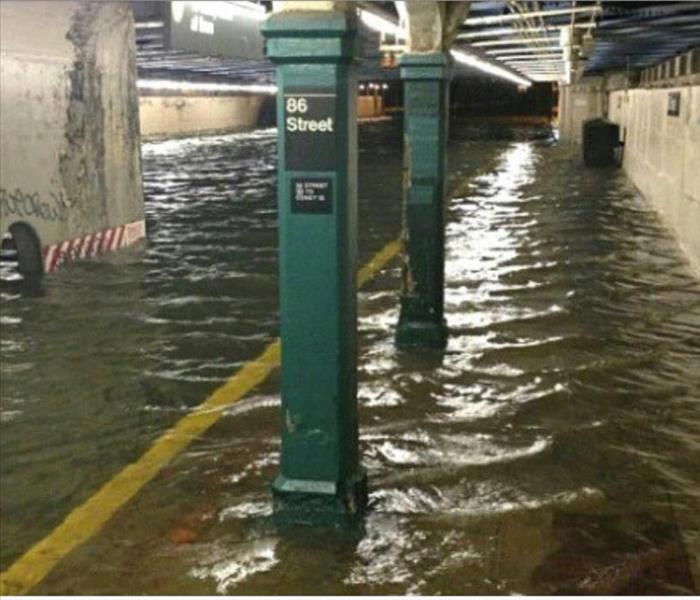Flood Season Is Here
9/22/2018 (Permalink)
Preparing for Floods
Water can be a nightmarish foe. Inside your home, less than one inch of standing water can cause thousands of dollars in damage by destroying wood-products and sheet rock, and providing an environment for mold. Outside in motion, water is incredibly powerful. One cubic yard weighs over 1,700 pounds. A mere 6 inches (that's 31.21 pounds) of water can knock an adult off their feet. Flood waters can plow through earthen dams, pull homes off their foundations and destroy them, sweep cars swiftly downstream, knock out power lines, and contaminate drinking water for weeks. Floods are the number one widespread natural disaster in the US and they often happen due to heavy rain fall from multiple storms or hurricanes.
What is a flash flood?
A flash flood occurs when powerful storms drop several inches of rain in one hour, the ground will not be able to absorb water fast enough. This produces heavy runoff that can quickly flood low-lying areas in less than 6 hours. Just one inch of rain over one acre of land can produce 27,154 gallons. That's over 100 tons of water suddenly on the move, carrying mud, boulders, and other debris. Flash flooding in urbanized and other paved areas can produce extreme flooding quickly, turning highway underpasses, underground parking third highest weather-related killer in the US.
How to keep safe during a flood:
Listen to the news and weather reports. NOAA Weather Radio All Hazards (NWR) broadcasts continuous weather information directly from the nearest National Weather Service office.
Listen for flood watches/warnings in your area. If your home is located in a flood plain or low-lying area prone to flooding, consider packing an emergency supply kit and personal items and evacuating to higher ground.
Protect your possessions and gather records:
- Copies of insurance policies with you agent's contact information
- Document and take photos of all household items and valuables.
- Copies of social security cards, passports, finance records and receipts of major purchases.
If your area is flooding or is flooded, stay out of flood waters as much as possible.
- Eating or drinking anything contaminated by flood water can cause diarrhoeal disease.
- Open wounds and rashes exposed to flood waters can become infected.
- Flood waters can displace animals and reptiles, including dangerous snakes.

 24/7 Emergency Service
24/7 Emergency Service